Items
Array is exactly
Rutgers Faculty
-
 Interview: Bethel, Leonard, 2021 Dr. Leonard Bethel is a Professor Emeritus in the Department of Africana Studies at Rutgers. He was born in 1939 in Philadelphia, Pennsylvania. In the interview, he describes growing up in the predominantly Black neighborhood of West Philadelphia, being involved in the Fellowship House, through which he became exposed to the Civil Rights Movement, and working at La Citadelle Camp, operated by activist and educator Layle Lane. After attending Lincoln University for his undergraduate degree, he earned a Master of Divinity at Johnson C. Smith University, during which time he was active in desegregation efforts in North Carolina. He earned a Master of Arts in Theology at New Brunswick Theological Seminary (NBTS) and received a doctorate at the Rutgers Graduate School of Education. He became an ordained Presbyterian minister in 1964. After coming to Rutgers in 1969, he worked to establish the Department of Africana Studies, chaired the department for fifteen years, and served as a faculty member for forty-two years. Through his ministry, he became involved in the anti-apartheid movement, as well as in community service organizations and initiatives. A long-time resident of Plainfield, he served as the pastor at Bethel Presbyterian Church. He is the author of numerous books and articles including Educating African Leaders: Missionism in America and La Citadelle: Layle Lane and Social Activism in 20th Century America.
Interview: Bethel, Leonard, 2021 Dr. Leonard Bethel is a Professor Emeritus in the Department of Africana Studies at Rutgers. He was born in 1939 in Philadelphia, Pennsylvania. In the interview, he describes growing up in the predominantly Black neighborhood of West Philadelphia, being involved in the Fellowship House, through which he became exposed to the Civil Rights Movement, and working at La Citadelle Camp, operated by activist and educator Layle Lane. After attending Lincoln University for his undergraduate degree, he earned a Master of Divinity at Johnson C. Smith University, during which time he was active in desegregation efforts in North Carolina. He earned a Master of Arts in Theology at New Brunswick Theological Seminary (NBTS) and received a doctorate at the Rutgers Graduate School of Education. He became an ordained Presbyterian minister in 1964. After coming to Rutgers in 1969, he worked to establish the Department of Africana Studies, chaired the department for fifteen years, and served as a faculty member for forty-two years. Through his ministry, he became involved in the anti-apartheid movement, as well as in community service organizations and initiatives. A long-time resident of Plainfield, he served as the pastor at Bethel Presbyterian Church. He is the author of numerous books and articles including Educating African Leaders: Missionism in America and La Citadelle: Layle Lane and Social Activism in 20th Century America. -
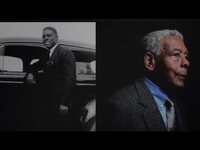 Interview: Brown, William Neal, 2005 Dr. Brown was born in Warrenton, Georgia, in 1919. He grew up in Aliquippa, Pennsylvania as the oldest of six siblings. He attended Hampton Institute and graduated in 1941 with a English and History major. A volunteer for the Army Air Force, he attended Officer Candidate School in Miami Beach and then volunteered to be trained at Tuskegee Air Field. He served as a special services officer with the 618th Bomb Squadron in the American Theater of Operations. After the war he attended Columbia University with the help of the GI Bill and he graduated in 1950. He was hired as the first African-American Professor at Rutgers University in 1956. He worked at the School of Social Work for 33 years. There were many highlights of Dr. Brown’s Academic career, but one that especially stands out was his debate at Rutgers with Malcolm X at the Rutgers School of Pharmacy.
Interview: Brown, William Neal, 2005 Dr. Brown was born in Warrenton, Georgia, in 1919. He grew up in Aliquippa, Pennsylvania as the oldest of six siblings. He attended Hampton Institute and graduated in 1941 with a English and History major. A volunteer for the Army Air Force, he attended Officer Candidate School in Miami Beach and then volunteered to be trained at Tuskegee Air Field. He served as a special services officer with the 618th Bomb Squadron in the American Theater of Operations. After the war he attended Columbia University with the help of the GI Bill and he graduated in 1950. He was hired as the first African-American Professor at Rutgers University in 1956. He worked at the School of Social Work for 33 years. There were many highlights of Dr. Brown’s Academic career, but one that especially stands out was his debate at Rutgers with Malcolm X at the Rutgers School of Pharmacy. -
 Interview: Busia, Abena, 2015 Founding member of the Center for Women's Global Leadership and Center for African Studies, Abena Busia is an Associate Professor in the Department of Women's and Gender Studies and the Department of English at Rutgers. She is also co-director and co-editor of the groundbreaking Women Writing Africa Project, a multi-volume anthology published by the Feminist Press at CUNY. Busia articulates the significance of communities and leadership at Rutgers and describes negotiating a space within Rutgers to consider women's experiences, blackness, and African womanness. She emphasizes the value of a single-sex education and describes Douglass as a place for nurturing women's leadership.
Interview: Busia, Abena, 2015 Founding member of the Center for Women's Global Leadership and Center for African Studies, Abena Busia is an Associate Professor in the Department of Women's and Gender Studies and the Department of English at Rutgers. She is also co-director and co-editor of the groundbreaking Women Writing Africa Project, a multi-volume anthology published by the Feminist Press at CUNY. Busia articulates the significance of communities and leadership at Rutgers and describes negotiating a space within Rutgers to consider women's experiences, blackness, and African womanness. She emphasizes the value of a single-sex education and describes Douglass as a place for nurturing women's leadership. -
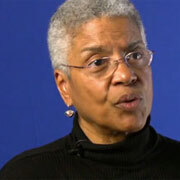 Interview: Clarke, Cheryl, 2012 Cheryl Clarke is a black lesbian feminist whose poetry, editorial work, and career at Rutgers have had a significant impact on black, lesbian, and women’s communities. She is the author of four collections of poetry, often centered around themes of black women’s issues and lesbian issues. She served as an editor of the lesbian publication Conditions for nine years and began working at Rutgers University in 1970. At Rutgers, she served as the founding Director of Diverse Community Affairs and Lesbian/Gay Concerns, which became the Office of Social Justice Education and LGBT Communities in 2004. She was the Dean of Students of Livingston Campus between 2009-2013 and retired from Rutgers in 2013 after 41 years of service. In this interview, Clarke discusses her upbringing in Washington, D.C. during the Civil Rights Movement, her passion for writing, and the role of feminism. Clarke proposes the idea that we, as a society, must be in the “project of transformation” to “create a new humanity” as we reconcile gender and race issues. --- See also an additional interview with Cheryl Clarke, recorded in 2018 by the Rutgers Oral History Archives.
Interview: Clarke, Cheryl, 2012 Cheryl Clarke is a black lesbian feminist whose poetry, editorial work, and career at Rutgers have had a significant impact on black, lesbian, and women’s communities. She is the author of four collections of poetry, often centered around themes of black women’s issues and lesbian issues. She served as an editor of the lesbian publication Conditions for nine years and began working at Rutgers University in 1970. At Rutgers, she served as the founding Director of Diverse Community Affairs and Lesbian/Gay Concerns, which became the Office of Social Justice Education and LGBT Communities in 2004. She was the Dean of Students of Livingston Campus between 2009-2013 and retired from Rutgers in 2013 after 41 years of service. In this interview, Clarke discusses her upbringing in Washington, D.C. during the Civil Rights Movement, her passion for writing, and the role of feminism. Clarke proposes the idea that we, as a society, must be in the “project of transformation” to “create a new humanity” as we reconcile gender and race issues. --- See also an additional interview with Cheryl Clarke, recorded in 2018 by the Rutgers Oral History Archives. -
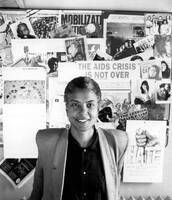 Interview: Clarke, Cheryl, 2018 Cheryl Clarke was born on May 16, 1947 in Washington, D.C. Her father served in the U.S. Army in the Red Ball Express in France after the Allied invasion in June 1944. Growing up in Northwest Washington, D.C., Cheryl attended parochial schools, including Immaculate Conception Academy for high school. From 1965 to 1969, Cheryl attended Howard University and majored in English. During college, she worked part time at the Washington Post and at a Peace Corps office. In 1969, Cheryl came to Rutgers-New Brunswick as a graduate student in English. She earned her M.A. in English in 1974. Cheryl taught courses in the Urban University Program and discusses educational opportunity programs in the interview. From 1972 to 1974, she taught courses in the English Department at Rutgers. A life-long activist, Cheryl discusses her many experiences participating in social movements, including the anti-war and Black Power movements at Howard University, anti-apartheid activism at Rutgers, LGBT activism, feminism and lesbian-feminism, and activism surrounding the defense of Assata Shakur. From 1974 to 1978, Cheryl worked in Middlesex County in the Comprehensive Employment and Training Program. In 1978, she returned to Rutgers to study social work, obtaining her M.S.W. in 1980. In 1980, Cheryl began working in Student Affairs at Rutgers. In 1992, she served as the founding director of the Office of Diverse Community Affairs and Lesbian/Gay Concerns (now called the Center for Social Justice Education and LGBT Communities). From 2009 to 2013, Cheryl served as the Dean of Students for Livingston Campus. In 2000, she earned her Ph.D. in English. At Rutgers, Cheryl coordinated the university-wide Committee to Advance Our Common Purposes and the New Brunswick-wide Bias Prevention Education Committee, in addition to establishing the university-wide network of "Liaisons" and teaching numerous courses. Cheryl is the author of Narratives: Poems in the Tradition of Black Women (1982); Living as a Lesbian (1986); Humid Pitch (1989); Experimental Love (1993); After Mecca: Women Poets and the Black Arts Movement (2005); and The Days of Good Looks: Prose and Poetry, 1980-2005 (2006). From 1981 to 1990, she served as a member of the editorial collective of the feminist literary journal Conditions. In 2013, Cheryl retired after forty-one years at Rutgers. Cheryl and her partner Barbara Balliet co-own Blenheim Hill Books in Hobart, New York and organize the annual Hobart Festival of Women Writers.
Interview: Clarke, Cheryl, 2018 Cheryl Clarke was born on May 16, 1947 in Washington, D.C. Her father served in the U.S. Army in the Red Ball Express in France after the Allied invasion in June 1944. Growing up in Northwest Washington, D.C., Cheryl attended parochial schools, including Immaculate Conception Academy for high school. From 1965 to 1969, Cheryl attended Howard University and majored in English. During college, she worked part time at the Washington Post and at a Peace Corps office. In 1969, Cheryl came to Rutgers-New Brunswick as a graduate student in English. She earned her M.A. in English in 1974. Cheryl taught courses in the Urban University Program and discusses educational opportunity programs in the interview. From 1972 to 1974, she taught courses in the English Department at Rutgers. A life-long activist, Cheryl discusses her many experiences participating in social movements, including the anti-war and Black Power movements at Howard University, anti-apartheid activism at Rutgers, LGBT activism, feminism and lesbian-feminism, and activism surrounding the defense of Assata Shakur. From 1974 to 1978, Cheryl worked in Middlesex County in the Comprehensive Employment and Training Program. In 1978, she returned to Rutgers to study social work, obtaining her M.S.W. in 1980. In 1980, Cheryl began working in Student Affairs at Rutgers. In 1992, she served as the founding director of the Office of Diverse Community Affairs and Lesbian/Gay Concerns (now called the Center for Social Justice Education and LGBT Communities). From 2009 to 2013, Cheryl served as the Dean of Students for Livingston Campus. In 2000, she earned her Ph.D. in English. At Rutgers, Cheryl coordinated the university-wide Committee to Advance Our Common Purposes and the New Brunswick-wide Bias Prevention Education Committee, in addition to establishing the university-wide network of "Liaisons" and teaching numerous courses. Cheryl is the author of Narratives: Poems in the Tradition of Black Women (1982); Living as a Lesbian (1986); Humid Pitch (1989); Experimental Love (1993); After Mecca: Women Poets and the Black Arts Movement (2005); and The Days of Good Looks: Prose and Poetry, 1980-2005 (2006). From 1981 to 1990, she served as a member of the editorial collective of the feminist literary journal Conditions. In 2013, Cheryl retired after forty-one years at Rutgers. Cheryl and her partner Barbara Balliet co-own Blenheim Hill Books in Hobart, New York and organize the annual Hobart Festival of Women Writers. -
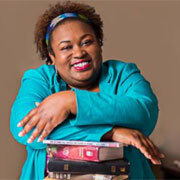 Interview: Cooper, Brittney, 2015 Brittney Cooper is Associate Professor of Women’s and Gender Studies and Africana Studies at Rutgers University. She is a Black feminist theorist who specializes in the study of Black women’s intellectual history, Hip Hop generation feminism, and race and gender representation in popular culture. Dr. Cooper is also a sought-after public speaker and commentator, her work and words have appeared in the New York Times, the Washington Post, TV Guide, the Los Angeles Times, MSNBC’s Melissa Harris-Perry Show, All In With Chris Hayes, Disrupt with Karen Finney, and Third Rail on Al-Jazeera America, among many others. She is also a co-founder of the Crunk Feminist Collective, a popular feminist blog. Dr. Brittney Cooper is a proud alumna of Howard University (class of 2002) and a proud native of North Louisiana. In this interview, Dr. Cooper speaks about her day-to-day work as an Assistant Professor in the Women’s and Gender Studies and Africana Studies departments. Including her work as a “hip hop feminist” and the book she had just finished at the time "Race Women: Gender and the Making of a Black Public Intellectual Tradition"(published as: "Beyond Respectability: The Intellectual Thought of Race Women"). She continues with speaking about her experiences as a Black Woman in her field and the challenges she faces, the different types of activism she partakes in, and ends the interview speaking about her college experience and the lessons she has learned.
Interview: Cooper, Brittney, 2015 Brittney Cooper is Associate Professor of Women’s and Gender Studies and Africana Studies at Rutgers University. She is a Black feminist theorist who specializes in the study of Black women’s intellectual history, Hip Hop generation feminism, and race and gender representation in popular culture. Dr. Cooper is also a sought-after public speaker and commentator, her work and words have appeared in the New York Times, the Washington Post, TV Guide, the Los Angeles Times, MSNBC’s Melissa Harris-Perry Show, All In With Chris Hayes, Disrupt with Karen Finney, and Third Rail on Al-Jazeera America, among many others. She is also a co-founder of the Crunk Feminist Collective, a popular feminist blog. Dr. Brittney Cooper is a proud alumna of Howard University (class of 2002) and a proud native of North Louisiana. In this interview, Dr. Cooper speaks about her day-to-day work as an Assistant Professor in the Women’s and Gender Studies and Africana Studies departments. Including her work as a “hip hop feminist” and the book she had just finished at the time "Race Women: Gender and the Making of a Black Public Intellectual Tradition"(published as: "Beyond Respectability: The Intellectual Thought of Race Women"). She continues with speaking about her experiences as a Black Woman in her field and the challenges she faces, the different types of activism she partakes in, and ends the interview speaking about her college experience and the lessons she has learned. -
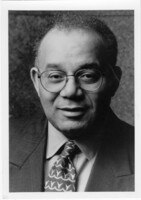 Interview: Curvin, Robert, 1991 Robert Curvin, a retired U.S Army 1st Lieutenant, completed his undergraduate degree at Rutgers-Newark in 1960. He later went on to obtain a master's degree at Rutgers University School of Social Work and a Ph.D. in political science at Princeton University in 1975. At Rutgers-Newark, Curvin served as an Adjunct Professor in the political science department and served as a faculty advisor to the Black Organization of Students (BOS).
Interview: Curvin, Robert, 1991 Robert Curvin, a retired U.S Army 1st Lieutenant, completed his undergraduate degree at Rutgers-Newark in 1960. He later went on to obtain a master's degree at Rutgers University School of Social Work and a Ph.D. in political science at Princeton University in 1975. At Rutgers-Newark, Curvin served as an Adjunct Professor in the political science department and served as a faculty advisor to the Black Organization of Students (BOS). -
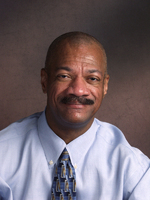 Interview: Glasker, Wayne, 2022 This interview was recorded as part of the Black Camden Oral History Project. Dr. Wayne Glasker is Emeritus Professor of History at Rutgers University–Camden. He is the author of the book Black Students in the Ivory Tower: African American Student Activism at the University of Pennsylvania, 1967-1990. He was born in 1957 in Philadelphia, Pennsylvania, to Mary Johnson and Morris Glasker. His parents were part of the Great Migration and had moved from Virginia to Pennsylvania in search of better work opportunities. In these interviews, Glasker discusses his childhood in Philadelphia and his experiences at the University of Pennsylvania from 1974 to 1994. Glasker earned his Bachelor’s degree in History and Sociology in 1980. He attended graduate school at UPenn as well, earning a PhD in History in 1994. During this time, he was active in the Black Student Union on campus, student government, and in the anti-apartheid movement. He discusses his experiences as a student activist and student government leader as well as the challenges on campus for African American students. In 1990 Glasker began teaching African American history at Rutgers–Camden. He served as director of the Africana Studies program from 1998 to 2011. He describes race relations on campus in the 1990s and student activism at Rutgers. He emphasizes the list of demands from Black student activists following the occupation of the Campus Center at Rutgers–Camden in 1969. He also describes his efforts to increase civic engagement in his classes.
Interview: Glasker, Wayne, 2022 This interview was recorded as part of the Black Camden Oral History Project. Dr. Wayne Glasker is Emeritus Professor of History at Rutgers University–Camden. He is the author of the book Black Students in the Ivory Tower: African American Student Activism at the University of Pennsylvania, 1967-1990. He was born in 1957 in Philadelphia, Pennsylvania, to Mary Johnson and Morris Glasker. His parents were part of the Great Migration and had moved from Virginia to Pennsylvania in search of better work opportunities. In these interviews, Glasker discusses his childhood in Philadelphia and his experiences at the University of Pennsylvania from 1974 to 1994. Glasker earned his Bachelor’s degree in History and Sociology in 1980. He attended graduate school at UPenn as well, earning a PhD in History in 1994. During this time, he was active in the Black Student Union on campus, student government, and in the anti-apartheid movement. He discusses his experiences as a student activist and student government leader as well as the challenges on campus for African American students. In 1990 Glasker began teaching African American history at Rutgers–Camden. He served as director of the Africana Studies program from 1998 to 2011. He describes race relations on campus in the 1990s and student activism at Rutgers. He emphasizes the list of demands from Black student activists following the occupation of the Campus Center at Rutgers–Camden in 1969. He also describes his efforts to increase civic engagement in his classes. -
Interview: Hyndman, Arnold, 2016Born in Los Angeles, California, Dr. Hyndman was interested in science from a young age and was encouraged by his teachers to attend programs and assist with research, prompting a career in science and education. During his time in high school, he was able to participate in summer research programs with institutions such as the University of Southern California in their marine animal laboratory. Dr. Hyndman participated in a school walkout after the assassination of Dr. Martin Luther King, Jr. After graduating high school in 1970, Dr. Hyndman went on to attend Princeton University, majoring in Biology. Building on the work of his bachelor’s degree, Dr. Hyndman returned to California to attend graduate school at the University of California, Los Angeles from 1974 to 1978 and he earned his Ph.D. in Philosophy and Neuroscience. During his graduate work, Dr. Hyndman was actively involved in recruiting more students of color to the biology department. He also made quick use of the teaching credentials he obtained from Princeton, working, over the summers, with an Upward Bound program, bringing inner city young people to college and university campuses and preparing them for college life. Dr. Hyndman took his first post-doctoral assignment at Ohio State University in the medical school working on research, before finding himself presented with offers for positions at both the University of California (UCSD), San Diego and at Livingston College. Dr. Hyndman worked out a compromise wherein he asked Rutgers to hold the position for a year, while he went to UCSD to complete a second post-doctoral program. While working at UCSD, Dr. Hyndman and his collaborators developed a cell culture technique and were among the early describers of the natural cell division and replication of post-mitotic cells. Dr. Hyndman’s work helped to illustrate that there are cells in our brains that continue to divide. In 1981, Dr. Hyndman became assistant professor in the Department of Biological Science at Rutgers University, during which time the faculty reorganized into the Faculty of Arts and Sciences (FAS). He served as the founding director of what was originally called the Minority Advancement Program and held this position until becoming associate provost in 1990. Dr. Hyndman established mechanisms to prime the coordination and funding for campus-based retention programs and provided administrative guidance for programs such as the establishment of the university’s Latino Cultural Center and the Asian Cultural Center. Dr. Hyndman then served as the Dean of Livingston College from 1993 until 2007. Since 2001, he has been the director of the Organizational Leadership Program. From 2001 to 2008, he also served as the director of the Criminal Justice Program. Dr. Hyndman is a professor in the Department of Cell Biology and Neuroscience. Dr. Hyndman served on the New Jersey State Board of Education, in addition to consulting for organizations such as SLS and Janssen Pharmaceuticals. He has obtained numerous credentials, including being an ordained Christian Minister, a New Jersey Teaching Credential, and membership in such organizations as the International Leadership Society and the Center for Bioethics and Human Dignity. He also serves as Chair of the Elder Board at Abundant Life Community Church, a position he has held since 2012. Dr. Hyndman is Secretary and Treasurer on the Executive Board of the Warren County National Alliance on Mental Illness.
-
Interview: Jackson, Peter, 1991Peter Jackson graduated from Rutgers-Newark in 1969 and later joined the faculty in the Master of Public Administration program. He was a member of the Black Organization of Students (BOS) and was instrumental in negotiations with the university administration and in the group's takeover of Conklin Hall in February 1969.
-
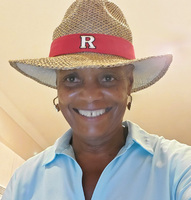 Interview: Petway, Sandra M., 2022 This interview was conducted by Professor Deborah Gray White for the Scarlet and Black research project. Sandra Petway, known to her friends and fellow athletes as Sandee, started the women’s track and field program at Rutgers–New Brunswick in 1974, a year after joining the university as a physical education instructor. She was the first Black head coach at Rutgers and led the track team until 1980. In 2022, she was inducted into the Rutgers Athletics Hall of Fame in recognition of her contribution to women’s sports and the many successes that her track team achieved during her tenure. Petway was born in 1950 in Plainfield, NJ, and grew up in Vineland in South Jersey. She attended Trenton State College (now The College of New Jersey), where she developed her leadership experience by creating a women’s varsity track team as an undergraduate student. In her interview, she discusses her memories of Rutgers athletics in the 1970s and the changes that Title IX brought to the university. She also discusses her family history and the impact that her mother, teacher and principal Pauline Petway, had on the community in Vineland.
Interview: Petway, Sandra M., 2022 This interview was conducted by Professor Deborah Gray White for the Scarlet and Black research project. Sandra Petway, known to her friends and fellow athletes as Sandee, started the women’s track and field program at Rutgers–New Brunswick in 1974, a year after joining the university as a physical education instructor. She was the first Black head coach at Rutgers and led the track team until 1980. In 2022, she was inducted into the Rutgers Athletics Hall of Fame in recognition of her contribution to women’s sports and the many successes that her track team achieved during her tenure. Petway was born in 1950 in Plainfield, NJ, and grew up in Vineland in South Jersey. She attended Trenton State College (now The College of New Jersey), where she developed her leadership experience by creating a women’s varsity track team as an undergraduate student. In her interview, she discusses her memories of Rutgers athletics in the 1970s and the changes that Title IX brought to the university. She also discusses her family history and the impact that her mother, teacher and principal Pauline Petway, had on the community in Vineland. -
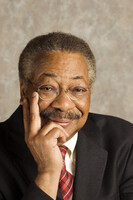 Interview: Price, Clement A., 1991 Clement A. Price was born in Washington, D.C., in 1945 and attended the D.C. public schools. He received his bachelor's and master's degrees from University of Bridgeport. After a year teaching African American history at Essex County College, Price joined the faculty at Rutgers-Newark in 1969, where he was initially hired as a part-time instructor. Soon after his appointment in Newark, he enrolled in the history Ph.D. program at Rutgers-New Brunswick, which he completed in 1975. Dr. Price taught at Rutgers-Newark for 45 years and established himself as one of the university's most esteemed faculty members. He is the recipient of numerous awards and honors, including serving as chair of President Obama's transition team for the National Endowment for the Humanities and vice chair of the Advisory Council on Historic Preservation. He has played leadership roles with many organizations in New Jersey, including the New Jersey State Council on the Arts, the Fund for New Jersey, the Newark Public Schools, the Newark Black Film Festival, the Newark Public Library, the Newark Education Trust, and the Save Ellis Island Foundation. Over the years, Dr. Price has published widely in African American History, Urban American History, and American Cultural Policy. He continued teaching history at Rutgers-Newark as Board of Governors Distinguished Service Professor until his death in 2014. The Clement A. Price Institute on Ethnicity, Culture and the Modern Experience at Rutgers-Newark was named in his honor.
Interview: Price, Clement A., 1991 Clement A. Price was born in Washington, D.C., in 1945 and attended the D.C. public schools. He received his bachelor's and master's degrees from University of Bridgeport. After a year teaching African American history at Essex County College, Price joined the faculty at Rutgers-Newark in 1969, where he was initially hired as a part-time instructor. Soon after his appointment in Newark, he enrolled in the history Ph.D. program at Rutgers-New Brunswick, which he completed in 1975. Dr. Price taught at Rutgers-Newark for 45 years and established himself as one of the university's most esteemed faculty members. He is the recipient of numerous awards and honors, including serving as chair of President Obama's transition team for the National Endowment for the Humanities and vice chair of the Advisory Council on Historic Preservation. He has played leadership roles with many organizations in New Jersey, including the New Jersey State Council on the Arts, the Fund for New Jersey, the Newark Public Schools, the Newark Black Film Festival, the Newark Public Library, the Newark Education Trust, and the Save Ellis Island Foundation. Over the years, Dr. Price has published widely in African American History, Urban American History, and American Cultural Policy. He continued teaching history at Rutgers-Newark as Board of Governors Distinguished Service Professor until his death in 2014. The Clement A. Price Institute on Ethnicity, Culture and the Modern Experience at Rutgers-Newark was named in his honor. -
Interview: Ramsey, James H., 1992James Ramsey holds a bachelor's degree from Tennessee State University and a master's in education from Brown University. He began his career as a biology teacher in Cedar Grove, New Jersey, and joined Rutgers-Newark as a professor of biology in the Academic Foundations Department in 1969; he was appointed its director in 1970. The Academic Foundations Department provided remedial programs for students who were underprepared for college work. Ramsey was key in developing the center and making it an integral part of the university. Ramsey later served as mayor of Montclair, New Jersey, from 1984-1986 and on the Montclair board of education. He has also been active in numerous civic affairs in the City of Newark.
-
 Interview: Shuford, Deborah, 2018 Deborah Shuford was born in Newark, New Jersey in 1959. Her parents grew up in Lowndes County, Alabama, before moving to Newark. For most of her childhood, her family lived in the Weequahic section. Deborah attended Chancellor Elementary School and Arts High School in Newark. During one summer in high school, Deborah attended the Technical Enrichment Program at Stevens Tech in Hoboken. From 1977 to 1981, Deborah went to Douglass College. She began as an engineering major and switched to journalism and English literature. Deborah earned her bachelor's degree in the Douglass College Class of 1981. Deborah worked for many years in the communications field. She interned at WOR-AM talk radio. She worked at ABC Radio and Television Network and then at the Public Broadcasting Service (PBS). In 2001, Deborah began studying for her master's degree at American University. After earning her master's in film in 2003, Deborah worked as a professor at institutions of higher education, including McDaniel College, Howard University and Rutgers University, where she developed a variety of courses in film studies and African American studies. She also worked as a producer, writer and documentary filmmaker. In addition to being an active alumna at Rutgers-New Brunswick, Deborah has volunteered at the New Jersey Tree Foundation and as a career coach at New Start. In the first interview session, recorded on June 8, 2018, Deborah discusses her family's history in Lowndes County, Alabama, notably her grandmother's involvement in the voter registration efforts spurred on by Stokely Carmichael and the Student Non-Violent Coordinating Committee in the summer of 1965. In discussing her childhood, Deborah talks about her family, siblings, parents' careers, traveling, education and neighborhoods in Newark. In the second interview, Deborah talks about the military service of her family members. She traces her family's roots in Alabama and her parents' migration to New Jersey. Growing up in the Weequahic section of Newark, she compares and contrasts the city before and after the Newark rebellion of 1967. In the third interview session, Deborah discusses her experiences during high school at Arts High in Newark. In 1977, she began attending Douglass College as an engineering major. She switched to journalism and recalls memorable professors Roger Cohen in journalism and Cheryl Wall in English. She describes student life and traditions at Douglass and the impact that Dean Jewel Plummer Cobb had upon her, as well as the college.
Interview: Shuford, Deborah, 2018 Deborah Shuford was born in Newark, New Jersey in 1959. Her parents grew up in Lowndes County, Alabama, before moving to Newark. For most of her childhood, her family lived in the Weequahic section. Deborah attended Chancellor Elementary School and Arts High School in Newark. During one summer in high school, Deborah attended the Technical Enrichment Program at Stevens Tech in Hoboken. From 1977 to 1981, Deborah went to Douglass College. She began as an engineering major and switched to journalism and English literature. Deborah earned her bachelor's degree in the Douglass College Class of 1981. Deborah worked for many years in the communications field. She interned at WOR-AM talk radio. She worked at ABC Radio and Television Network and then at the Public Broadcasting Service (PBS). In 2001, Deborah began studying for her master's degree at American University. After earning her master's in film in 2003, Deborah worked as a professor at institutions of higher education, including McDaniel College, Howard University and Rutgers University, where she developed a variety of courses in film studies and African American studies. She also worked as a producer, writer and documentary filmmaker. In addition to being an active alumna at Rutgers-New Brunswick, Deborah has volunteered at the New Jersey Tree Foundation and as a career coach at New Start. In the first interview session, recorded on June 8, 2018, Deborah discusses her family's history in Lowndes County, Alabama, notably her grandmother's involvement in the voter registration efforts spurred on by Stokely Carmichael and the Student Non-Violent Coordinating Committee in the summer of 1965. In discussing her childhood, Deborah talks about her family, siblings, parents' careers, traveling, education and neighborhoods in Newark. In the second interview, Deborah talks about the military service of her family members. She traces her family's roots in Alabama and her parents' migration to New Jersey. Growing up in the Weequahic section of Newark, she compares and contrasts the city before and after the Newark rebellion of 1967. In the third interview session, Deborah discusses her experiences during high school at Arts High in Newark. In 1977, she began attending Douglass College as an engineering major. She switched to journalism and recalls memorable professors Roger Cohen in journalism and Cheryl Wall in English. She describes student life and traditions at Douglass and the impact that Dean Jewel Plummer Cobb had upon her, as well as the college. -
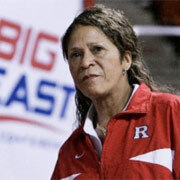 Interview: Stringer, C. Vivian, 2009 C. Vivian Stringer is the former head coach of the Rutgers University women’s basketball team from 1995 to 2022. Stringer holds the distinction of being the first coach, men’s or women’s, in NCAA history to lead three different women’s programs to the NCAA Final Four. She is the fifth all-time winningest coach in women’s basketball. She was formerly the head coach of the University of Iowa women’s basketball team and the Cheyney State women’s basketball team. Stringer was the 2001 inductee into the Women’s Basketball Hall of Fame. She is the three-time national coach of the year and was the assistant coach for the gold medal-winning 2004 U.S. Olympic team. In 2009 In 2018, she won her 1,000th game as a head coach, which made her the first African-American college basketball coach to win 1,000 games. She was honored with the degree of Honorary Doctor of Humanities from Howard University on May 10, 2008, the university's 140th commencement address. She was also inducted as an honorary member of Alpha Kappa Alpha sorority on July 15, 2008 during the sorority's Centennial Ball in Washington, DC. Stringer is also the author of the autobiographical book “Standing Tall: A Memoir of Tragedy and Triumph”. C. Vivian Stringer discusses the leadership style she has developed over her years as a coach and the particular responsibility she feels as a black woman in a leadership position. She also talks about the way she helps transforms the lives of young women and ends with advice she gives to the interviewer as a young woman with hopes of leadership in her future.
Interview: Stringer, C. Vivian, 2009 C. Vivian Stringer is the former head coach of the Rutgers University women’s basketball team from 1995 to 2022. Stringer holds the distinction of being the first coach, men’s or women’s, in NCAA history to lead three different women’s programs to the NCAA Final Four. She is the fifth all-time winningest coach in women’s basketball. She was formerly the head coach of the University of Iowa women’s basketball team and the Cheyney State women’s basketball team. Stringer was the 2001 inductee into the Women’s Basketball Hall of Fame. She is the three-time national coach of the year and was the assistant coach for the gold medal-winning 2004 U.S. Olympic team. In 2009 In 2018, she won her 1,000th game as a head coach, which made her the first African-American college basketball coach to win 1,000 games. She was honored with the degree of Honorary Doctor of Humanities from Howard University on May 10, 2008, the university's 140th commencement address. She was also inducted as an honorary member of Alpha Kappa Alpha sorority on July 15, 2008 during the sorority's Centennial Ball in Washington, DC. Stringer is also the author of the autobiographical book “Standing Tall: A Memoir of Tragedy and Triumph”. C. Vivian Stringer discusses the leadership style she has developed over her years as a coach and the particular responsibility she feels as a black woman in a leadership position. She also talks about the way she helps transforms the lives of young women and ends with advice she gives to the interviewer as a young woman with hopes of leadership in her future. -
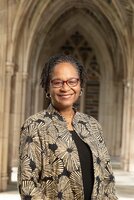 Interview: Wall, Cheryl A., 2015 Cheryl Wall (1948-2020) was a Board of Governors Zora Neale Hurston Distinguished Professor of English and former Chair of the English Department. Wall was an author and a specialist in Black women's writing, the Harlem Renaissance, and Zora Neale Hurston. She was a co-chair of the President's Council on Institutional Diversity and Equity. Joining Douglass College in 1972 as an assistant instructor, in her interview Wall described her role in the development of the college and its legacy today. She discussed the intrinsic value of the humanities in the context of a liberal arts education, student activism on campus, and the evolution of the Douglass Woman.
Interview: Wall, Cheryl A., 2015 Cheryl Wall (1948-2020) was a Board of Governors Zora Neale Hurston Distinguished Professor of English and former Chair of the English Department. Wall was an author and a specialist in Black women's writing, the Harlem Renaissance, and Zora Neale Hurston. She was a co-chair of the President's Council on Institutional Diversity and Equity. Joining Douglass College in 1972 as an assistant instructor, in her interview Wall described her role in the development of the college and its legacy today. She discussed the intrinsic value of the humanities in the context of a liberal arts education, student activism on campus, and the evolution of the Douglass Woman. -
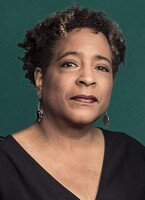 Interview: White, Deborah Gray, 2016 Deborah Gray White is the Board of Governors Distinguished Professor of History and Professor of History at Rutgers University. During her forty years at Rutgers, she has not only been a professor but also the co-director of "The Black Atlantic: Race, Nation and Gender" project at the Rutgers Center for Historical Analysis (1997-99), a research professor at the Rutgers Institute for Research on Women (1999-2000), and chair of the history department (2000-03). As an Americanist who specializes in African American and American Women’s history, Professor White is especially interested in issues of identity and the intersection of race, class, gender, and sexuality. In this interview, Dr. White begins by talking about the influential women in her childhood. Then the interview transitions to her work as a historian and what her title at Rutgers means. She also discusses her work directing a major institutional research project that uncovered the history of enslaved and disenfranchised populations in Rutgers history. The project resulted in the publication of the book Scarlet and Black: Slavery and Dispossession in Rutgers History. The interview ends with her advice for young Black women on how to obtain the type of success Dr. White has achieved.
Interview: White, Deborah Gray, 2016 Deborah Gray White is the Board of Governors Distinguished Professor of History and Professor of History at Rutgers University. During her forty years at Rutgers, she has not only been a professor but also the co-director of "The Black Atlantic: Race, Nation and Gender" project at the Rutgers Center for Historical Analysis (1997-99), a research professor at the Rutgers Institute for Research on Women (1999-2000), and chair of the history department (2000-03). As an Americanist who specializes in African American and American Women’s history, Professor White is especially interested in issues of identity and the intersection of race, class, gender, and sexuality. In this interview, Dr. White begins by talking about the influential women in her childhood. Then the interview transitions to her work as a historian and what her title at Rutgers means. She also discusses her work directing a major institutional research project that uncovered the history of enslaved and disenfranchised populations in Rutgers history. The project resulted in the publication of the book Scarlet and Black: Slavery and Dispossession in Rutgers History. The interview ends with her advice for young Black women on how to obtain the type of success Dr. White has achieved.
